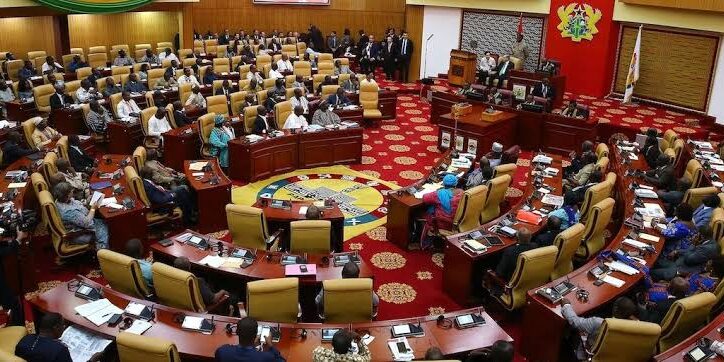Why nutrition governance needs stronger coordination and political leadership.
When Prof. Richmond Aryeetey compared Ghana’s food and nutrition governance to a “Game of Thrones”, he wasn’t being playful. He was describing a system where multiple ministries, agencies, and development partners operate in parallel, often with good intentions — but little coordination. The result? Policies without power, and programs without the impact they promise.
“If food system governance were a game of thrones,” he said during his inaugural lecture at the Ghana Academy of Arts and Sciences, “who would sit on the iron throne? We need clear leadership to ensure the system works for all Ghanaians.”
A Kingdom Divided
Ghana’s food and nutrition responsibilities are currently scattered across 11 ministries — from Health and Agriculture to Education, Trade, Sanitation, and Local Government. Each plays a role, yet none holds full authority.
This fragmented approach has led to overlapping mandates, weak accountability, and a lack of sustained focus on nutrition outcomes. As Prof. Aryeetey explained, “When everyone is responsible, no one is accountable.”
The Ghana Health Service runs nutrition programs under the Ministry of Health. The Ministry of Food and Agriculture drives productivity and supply. The National Development Planning Commission (NDPC) sets policy direction. But coordination among them remains inconsistent, and competing priorities often derail collaboration.
Policies on Paper, Not in Practice
In the last decade, Ghana has produced an impressive 75 policy documents related to food and nutrition; from child feeding and maternal health to agriculture, education, and social protection.
Yet research shows that nearly 75% of these policies have low or very low implementation rates. Many are launched with fanfare but falter at the execution stage due to funding gaps, unclear responsibilities, or lack of follow-up mechanisms.
Prof. Aryeetey notes that “we are not short of plans. We are short of political will and coordination.”
Without unified leadership, nutrition programs remain siloed, often driven by donor timelines rather than long-term national strategies.
The Missing Leadership: A National Nutrition Commission
To address this, Prof. Aryeetey calls for the creation of a National Nutrition Commission, established under the Office of the President.
Such a commission, he argues, would elevate nutrition beyond any single ministry and ensure multisectoral collaboration at the highest level of government. It would coordinate policy implementation, streamline funding, and hold ministries accountable for nutrition-related results.
This structure is not new. Globally, similar models exist in countries that have successfully reduced malnutrition, including Ethiopia and Thailand. A Ghanaian version, led from the presidency, could unify national action around food systems and human health.
Political Will: Beyond Speeches
Leadership, however, is not just about institutions, it’s about political will.
Prof. Aryeetey emphasized that Ghana’s leaders are often visible at high-level events and policy launches but rarely follow through with Level Two and Level Three political action, sustained financing and long-term implementation.
“Our politicians are doing Level One — giving speeches,” he said. “We need them to do Levels Two and Three — implementation and financing.”
This observation strikes at the heart of Ghana’s development challenges: good ideas often stall at the announcement stage. Until nutrition is treated as a political and economic priority, rather than a social welfare issue, progress will remain slow and uneven.
The Cost of Inaction
Weak governance in nutrition has a measurable price. Ghana loses nearly 6.4% of its GDP annually to malnutrition-related illnesses and productivity losses — the equivalent of about US$3 billion every year.
Poor coordination wastes not only food and resources but also opportunities for innovation and inclusive growth. Effective governance could turn nutrition from a cost center into a driver of development.
A Path Forward
To strengthen governance, Ghana must:
-
Align national and district-level actions, ensuring ministries and local assemblies work toward shared nutrition goals.
-
Establish dedicated funding with transparent tracking of nutrition investments across sectors.
-
Improve data systems so progress can be measured consistently.
-
Empower cross-sector advocacy, involving civil society, academia, and the media in monitoring accountability.
Prof. Aryeetey’s message is clear: fixing governance is not optional. it is foundational to every food and health outcome Ghana seeks to achieve.
Conclusion: A Throne Worth Claiming
If Ghana’s food system truly resembles a Game of Thrones, then the “Iron Throne” — representing power and accountability — must not remain empty. Leadership must emerge that can unite competing actors under a shared national vision.
“We need to demand that the food system work for us,” Prof. Aryeetey concluded. “The cost of poor nutrition is too high for our economy, our health, and our future generations.”
In the end, governance and not food production alone will determine whether Ghana’s people can live nourished, healthy, and dignified lives.
–
Next in the Series →
📖 “₵76 Billion Down the Drain: Ghana’s Food Waste Crisis” — how inefficiency across the supply chain costs Ghana billions in lost food and missed nutrition.




